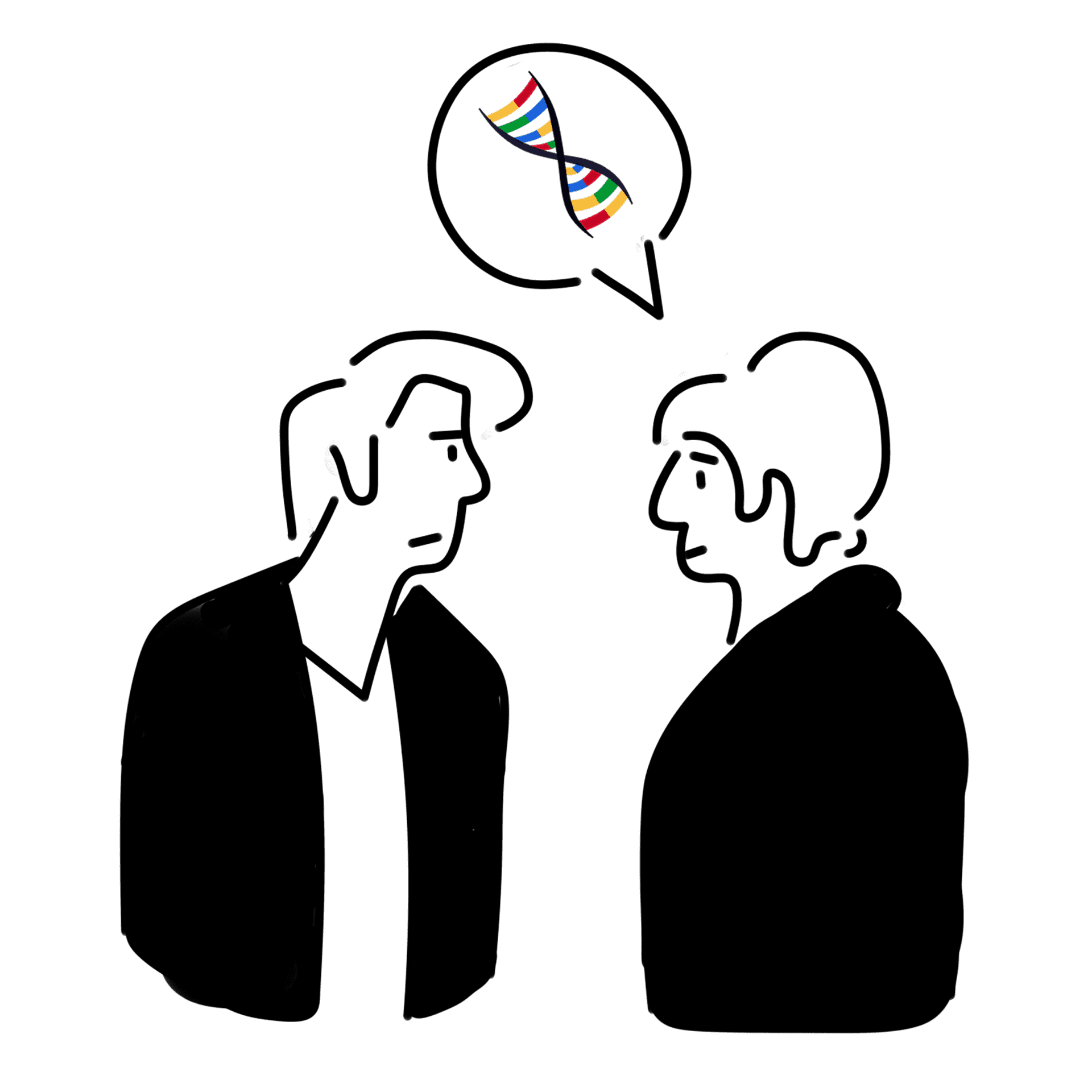We know discussing health and related genetic disorders can sometimes be difficult, so we decided to break it down for you.
Step 1: Think about it!
“You get your stubbornness from your mother!” “You’re loud, just like your dad!” You’ve probably heard these comments at some point in your life. Although personality traits aren’t genetic (your mom didn’t give you a ‘stubborn’ gene!), other things are genetic. Things that aren’t apparent, like your mom’s unwillingness to cooperate, can be passed down from your parents and be within your family’s genes. This is why you may consider genetic testing! Families may have an underlying genetic disorder or predisposition that may get really scary later in life. Head to your nearest clinic and sit with a genetic counselor! It’s their job to talk to you about your family history and risk factors, and discuss if genetic testing is right for you and your family. They are also there to talk you through any tough news, and assure you that it will all be alright.

Decide why you want to seek genetic counseling and prepare yourself mentally. It seems like a scary process, but the experts will walk you through it every step of the way!
Step 2: Should I?
What are some reasons people seek genetic testing?

- A health condition seems to run in the family.
- Several family members have had the same type of cancer, or have gotten cancer at a young age.
- Families wish to know about genetic risks before or during pregnancy
- Certain medical problems in childhood can point to a genetic answer
- A genetic counselor’s job is to turn all of this information into a plan for your family, and to help you make the best decisions!
Step 3: Talk to your family about it
We get that as a teen it's awkward talking about your health to your family! Up until now your parents have most likely been calling the shots when it came to decisions on your health, from flu shots to annual health checkups. However, it is good to take initiative - especially when it comes down to the health of you and your family!
We realize that it can sometimes be hard to express health concerns. Our team recommends approaching your family with gentle conversation starters that encourage your family to think about their hereditary health as well. Questions such as “Do you think our family has a history of __?” or “Is there anything that runs in the family I should know about __?” You can also bring up a deceased relative that died due to an illness, but be careful in the tone you give off. If you are met with skepticism from your family members at first it is completely fine! Assure your family that going to a genetic counselor offers them nothing to lose. Remember, you are doing this for the overall well-being of all your family members!
Step 4: Start the Conversation
Some Conversation Starters to start you off:

- Is there anything that runs in the family, that I should know about
- Why did grandma and grandpa die from ____?
- Has anyone in the family suffered from heart disease or ____?
- Should I be worried about ____?
- I am concerned about ____ What are my next steps?
- I learned about genetics today, do we have any genetic disorders?

